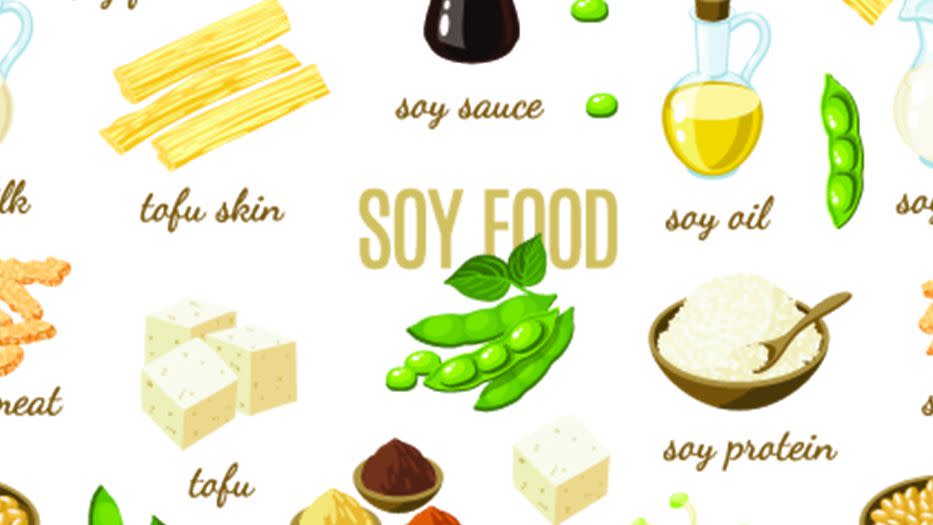Everything You Need to Know About Soy Food

Tons of non-meat eaters turn to soy to get their protein fill, so much so that you'd be hard-pressed to find a vegetarian alternative food product that doesn't contain soy. You'll find it in tofu, miso soup, edamame, milk alternatives, and basically every veggie burger in the frozen food aisle. Needless to say, consumption has skyrocketed in recent years. In 2013, the soy foods industry in the U.S. totaled $4.5 billion, which is a big jump from the $1 billion it brought in in 1996, according to research by Katahdin Ventures, a marketing and content development firm focused on agriculture and sustainability.
The Benefits of Soy
Soybeans deliver a high protein count for significantly fewer calories than most meat. Not only that, but soy also contains all of the essential amino acids, which gives it a huge leg up on other plant proteins. Plus, soy is rich in fiber, free of cholesterol, and doesn't have the saturated fat content that you'd find in animal products.
Straight-up nutrition facts aside, soy provides a number of health advantages. Research shows that eating soy products can reduce the risk of a stroke and lung cancer among nonsmoking women and can increase the chances of survival for women who already have lung cancer.
Debunking the Myths Surrounding Soy
Though there are tons of alleged benefits of soy, solid research simply isn't all there yet. Soy research is so complicated because the amount of isoflavones, which are estrogen-like compounds that are found naturally in soy, can vary widely from product to product.
At some point, you've probably heard that women with breast cancer should stay away from soy. The initial studies, which were done on rats, indicated there could be a link between soy and breast cancer, says registered dietitian Dawn Orsaeo. But research on humans suggests otherwise. A meta-analysis of 35 studies published in the journal PLOS ONE found no correlation between soy and breast cancer for most women. A separate study from U.K. researchers determined that eating soy foods-even in high amounts as is common in many Asian cultures-can reduce the risk of breast cancer recurrence.
There is one risk, however, that's gone pretty much undisputed: People with thyroid issues should limit their soy intake. Soy is a goitrogen, which means it promotes the growth of the thyroid gland. A study from U.K. researchers found people with hypothyroidism who followed a diet filled with 16 milligrams of soy phytoestrogens a day (which is about what you'd find in an average vegetarian diet) increased their risk of developing overt hypothyroidism three-fold compared with people who followed a diet with only 2 milligrams of phytoestrogens a day.
And you'd think eating soy rather than fatty meat would be good for your heart, but a study published in the American Journal of Clinical Nutrition found no such perk. The researchers compared a diet rich in soy beans, soy flour, and soy milk with a diet heavy in meat, chicken, and dairy products. Both diets contained about the same amount of cholesterol, fiber, and fatty acids throughout the study. In the end, the results were pretty boring. No major differences in cardiovascular disease risk factors were found.
The Whole Truth About Soy Foods
A study from Alternative Therapies in Health and Medicine acknowledged that soy is controversial, so the researchers decided to look at studies from a big-picture point of view. They found that yes, soy does have some benefits, but there are some question marks, like all those times when a study says one thing and then two years later another study completely goes against it.
Until more sweeping conclusions are made, don't feel pressure to pop veggie burgers in the microwave on the reg. Even though they don't have as much fat as meat, they likely are loaded up with sodium and artificial ingredients. "Instead, go for whole soy foods, like soy milk, edamame, soybeans, or soy nuts," suggests Orsaeo. And keep an eye on your overall intake. "The recommendation from the American Institute for Cancer Research is to have no more than three servings in a day, which most Americans aren't going to do anyway."

